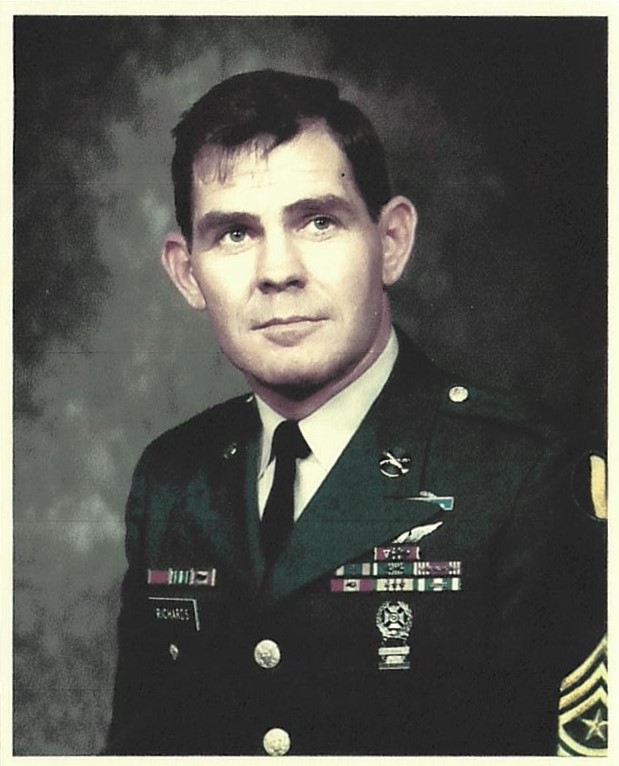“This was the most pleasant hospitalization we’ve ever encountered.”

Having a health crisis is never convenient, but it often seems to happen at the worst possible time. This was the case for 88-year-old Toby, who was traveling out of state with his wife Olga. Often struggling with chronic health issues because of his exposure to Agent Orange while serving in Vietnam, he is a loyal and long-time patient of the University of Arkansas for Medical Sciences (UAMS) hospital system.
Struck with sudden and severe pain due to kidney stones and a kidney infection, he was determined to return to his trusted healthcare providers for treatment. “I drove 490 miles, leaning over the steering wheel and throwing up,” Toby says of his trip home to UAMS. “Scared my wife to death.”
This visit to UAMS turned out to be different from previous ones. After spending some time in the emergency room and expecting to be admitted to the hospital, Toby and his wife were approached by a nurse with UAMS Recovery Care at Home, a new program offered by the health system that brings eligible patients home for care they would otherwise receive in the hospital.
A “seamless, well-organized” experience
Toby’s wife, Olga: “A lady came to us and said, ‘I would like to talk with you about something, it’s a new program but we’d like to see what you think about it.’” With her own strong background in research, Olga says, “We asked her so many questions. And she answered them so professionally, we knew after speaking with her that this is what we needed.”
After opting into the program, Toby and Olga were sent home with everything needed to treat his condition at home. “They had everything except the CT scan and MRI, but that’s just because they aren’t portable. The nurse was able to do an EKG—she was able to do everything,” Olga shared.
“It was such a smooth transition, they were well organized and well-equipped, and the face-to-face [virtual visits] with Dr. Gray were enjoyable,” she added. “The first nurse we had walked in the door, and she became part of the family. She exuded compassion, she was humorous and she answered all our questions— she was fantastic. All of them were so genuine. And if they said they were going to be here at ten, at ten you look at the driveway and they’re here.”
A perfect fit
The Recovery Care at Home program was especially helpful for Toby, his wife notes. Like many who have served in the military, the decorated Army veteran has a history of post-traumatic stress disorder (PTSD). “We believe that this is the best program ever, particularly for people who have difficulty getting out of their homes because of PTSD or any other issues where they’re just not comfortable or have anxiety,” she explains. “It’s also an excellent program for the caregiver. I never leave my husband when he’s in the hospital.”
The hospital, Olga says, is a stressful experience no matter how excellent the care is, but for Toby the unfamiliar surroundings and routine add to anxiety. Even just waiting for answers can add to that, but with Recovery Care at Home, “We knew what time we were going to talk to the doctor. It just took all of the anxiety and stress, the ‘when are they going to come in,’ and the ‘wake you up in the middle of the night to take your vitals’ out of it. This was the most pleasant ‘hospitalization’ we’ve ever encountered.
“Even the food— you have to have a schedule in a hospital, when you’re cooking for a large number of people with different dietary needs. But being at home, if you want something, it’s readily available.”
This familiarity, she observes, is especially valuable to patients who are vulnerable to changes in their environment: “Elderly people that get so nervous, and particularly those who have started into dementia, you can’t take them out of their routine, it’s too much of a problem. I know it’s not for every disease or treatment that comes up medically, but for those cases like my husband’s, it’s wonderful.”
A welcome new option for healthcare
Toby and Olga are thrilled to know that going forward, Recovery Care at Home is now an option for them at UAMS. Olga shares that she often hears friends say they don’t want to see the doctor about a problem because they are worried about being sent to the hospital, and now she tells them about the possibility of returning home to receive their hospital-level care. “Excellent, outstanding, extraordinary— those are words that can be used but they just don’t cover it,” she says.
Adds Toby, with a chuckle, “I might go back to the emergency room just to get the team back— they made that 490 miles I drove, kind of pleasant.”
